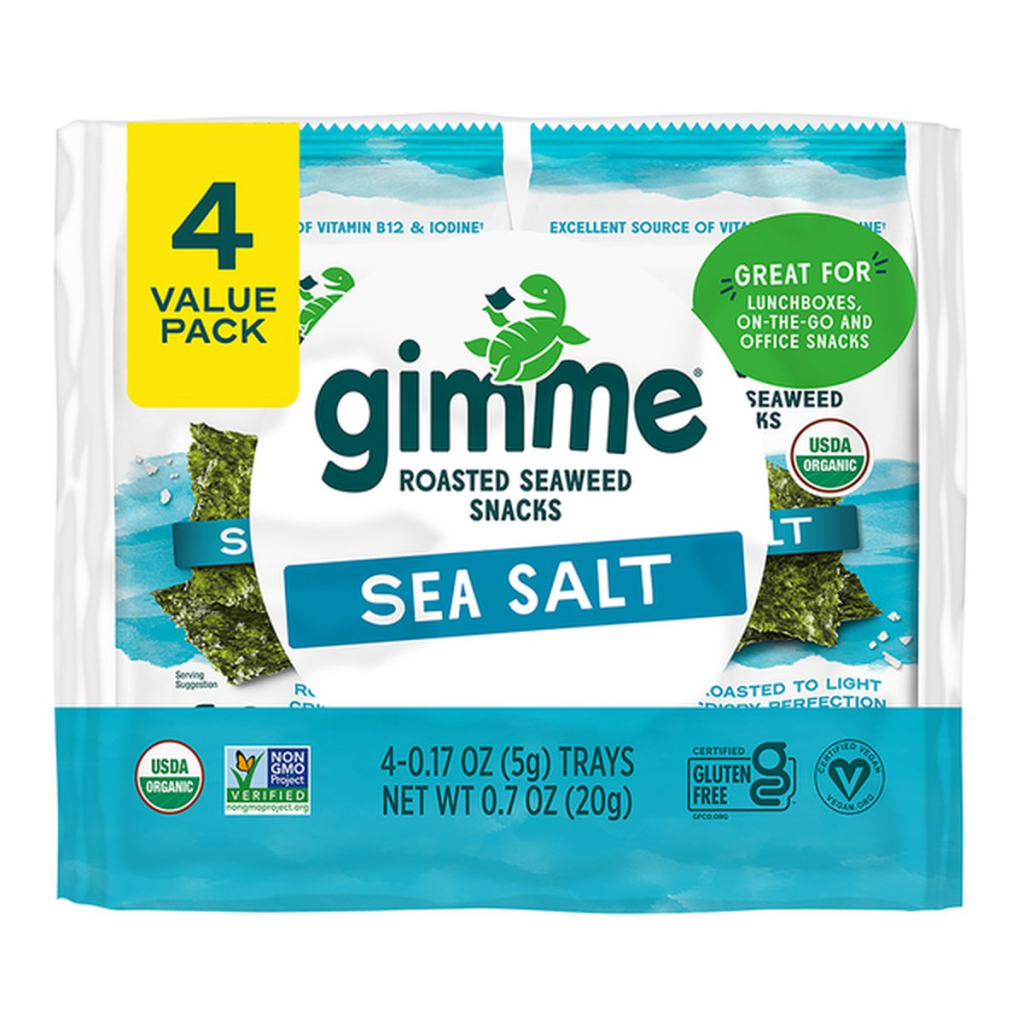Discover The Nutritional Power Of Food Lion Seaweed – Experience A Healthier You Today!
Food Lion Seaweed: A Nutritious and Sustainable Superfood
Introduction
Good People, welcome to this informative article on Food Lion Seaweed! As Lions Enthusiasts, we are always on the lookout for new and exciting ways to improve our health and well-being. In recent years, seaweed has gained popularity as a superfood due to its abundance of nutrients and numerous health benefits. In this article, we will explore everything you need to know about Food Lion Seaweed, including its origins, nutritional value, benefits, and more. So sit back, relax, and let’s dive into the world of this nutritious and sustainable superfood!
1 Picture Gallery: Discover The Nutritional Power Of Food Lion Seaweed – Experience A Healthier You Today!

The Basics of Food Lion Seaweed
What is Food Lion Seaweed? 🌿
Food Lion Seaweed, also known as kelp or sea vegetables, is a type of marine algae that grows along coastlines worldwide. It is highly valued for its rich nutritional content and versatility in culinary applications. Seaweed has been a staple in Asian cuisines for centuries, and now it is gaining popularity in Western cultures as well.
Who Consumes Food Lion Seaweed? 🌍

Image Source: ifoodlion.shop
Food Lion Seaweed is consumed by people of various cultures and backgrounds around the globe. It is particularly popular in countries like Japan, Korea, China, and Thailand, where it is a traditional part of their diets. However, its appeal is rapidly spreading, and more and more people worldwide are incorporating seaweed into their meals.
When is Food Lion Seaweed Harvested? ⏰
Food Lion Seaweed is typically harvested during the spring and summer months when it reaches its peak growth. The exact timing may vary depending on the species and the specific location where it is cultivated. It is important to harvest seaweed at the right time to ensure optimal taste and nutritional value.
Where is Food Lion Seaweed Found? 🌊
Food Lion Seaweed can be found in oceans and seas around the world. It thrives in cold, nutrient-rich waters and is often found along rocky coastlines. Some of the primary regions known for seaweed cultivation include the coastlines of Asia, Europe, North America, and Australia.
Why Should You Include Food Lion Seaweed in Your Diet? 🥗
Food Lion Seaweed offers a multitude of health benefits that make it worth incorporating into your diet. Firstly, it is a nutrient powerhouse, packed with vitamins, minerals, and antioxidants. It is also an excellent source of iodine, which is essential for proper thyroid function. Additionally, seaweed contains unique compounds like fucoxanthin, which has been studied for its potential anti-inflammatory and anti-obesity effects.
How Can Food Lion Seaweed be Used? 🍽️
Food Lion Seaweed is incredibly versatile and can be used in various culinary preparations. It can be added to soups, stews, and salads for an extra boost of flavor and nutrition. It can also be used as a wrap for sushi rolls or as a topping for rice and noodle dishes. Some people even enjoy eating it as a crunchy snack or using it as a seasoning in their favorite recipes.
Pros and Cons of Food Lion Seaweed
Pros of Food Lion Seaweed 🌟
1. Nutrient-rich: Food Lion Seaweed is packed with essential vitamins, minerals, and antioxidants that contribute to overall health and well-being.
2. Sustainable: Seaweed farming is an environmentally friendly practice that requires no freshwater, arable land, or fertilizers.
3. Low in calories: Seaweed is naturally low in calories and can be a great addition to a balanced diet for those watching their calorie intake.
4. Versatile in cooking: Food Lion Seaweed can be used in a variety of dishes, adding unique flavors and textures to meals.
5. Potential health benefits: Some studies suggest that seaweed consumption may support heart health, weight management, and digestion.
Cons of Food Lion Seaweed ❌
1. High iodine content: While iodine is essential for thyroid function, excessive consumption of seaweed can lead to iodine imbalances, especially for individuals with thyroid disorders.
2. Contamination risk: Seaweed can absorb heavy metals and pollutants from the water, so it is important to source it from reputable suppliers.
3. Allergic reactions: Some individuals may be allergic to seaweed, so it is important to exercise caution and seek medical advice if any adverse reactions occur.
4. Strong taste: The distinct taste of seaweed may not appeal to everyone’s palate, so it is recommended to start with small amounts and experiment with different recipes.
5. Availability: Depending on your location, finding high-quality Food Lion Seaweed may be a challenge, as it is not as widely available as other ingredients.
Frequently Asked Questions (FAQs)
Q1: Can Food Lion Seaweed Help with Weight Loss? 🤔
A1: While seaweed itself does not directly cause weight loss, it can be a valuable addition to a balanced diet. The low-calorie content, high fiber, and potential anti-obesity effects of certain seaweed compounds may support weight management efforts.
Q2: Is Food Lion Seaweed Safe for Pregnant Women? 🤰
A2: Pregnant women should consult with their healthcare providers before adding seaweed to their diets. While seaweed can be a good source of nutrients, excessive iodine intake can be harmful during pregnancy. It is essential to ensure a balanced and controlled consumption of seaweed.
Q3: Can Food Lion Seaweed Help Lower Cholesterol? 🩺
A3: Some studies suggest that certain compounds found in seaweed may have cholesterol-lowering effects. However, more research is needed to fully understand the mechanisms and potential benefits. It is always best to incorporate seaweed into a well-rounded, heart-healthy diet.
Q4: How Should Food Lion Seaweed be Stored? 🌡️
A4: To maintain its freshness, Food Lion Seaweed should be stored in a cool, dry place away from direct sunlight and moisture. It is best to keep it in an airtight container or resealable bag to prevent it from absorbing excess moisture from the air.
Q5: Are There Different Types of Food Lion Seaweed? 🌿
A5: Yes, there are several different types of Food Lion Seaweed, each with its unique characteristics and flavors. Some popular varieties include nori, wakame, dulse, and kombu. Exploring these different types can add diversity to your culinary experiences.
Conclusion: Embrace the Power of Food Lion Seaweed!
In conclusion, Food Lion Seaweed is a nutrient-packed superfood that offers numerous health benefits while being environmentally sustainable. Its versatile nature allows for a wide range of culinary creations, from savory dishes to healthy snacks. However, it is important to consume seaweed in moderation and ensure its quality and safety. So, why not add a touch of the ocean to your plate and enjoy the goodness of Food Lion Seaweed today?
Final Remarks: Discover the Wonders of Food Lion Seaweed
As we conclude this article, it is essential to note that while Food Lion Seaweed has numerous potential health benefits, it is not a magical cure-all. It should be incorporated into a balanced diet alongside other nutritious foods. Additionally, individual responses to seaweed may vary, so it is always advisable to consult with a healthcare professional before making any significant dietary changes. With that said, let’s embark on this seaweed adventure, discovering new flavors, and embracing its undeniable nutritional value. Stay healthy, stay curious, and enjoy the journey!
This post topic: Lions

